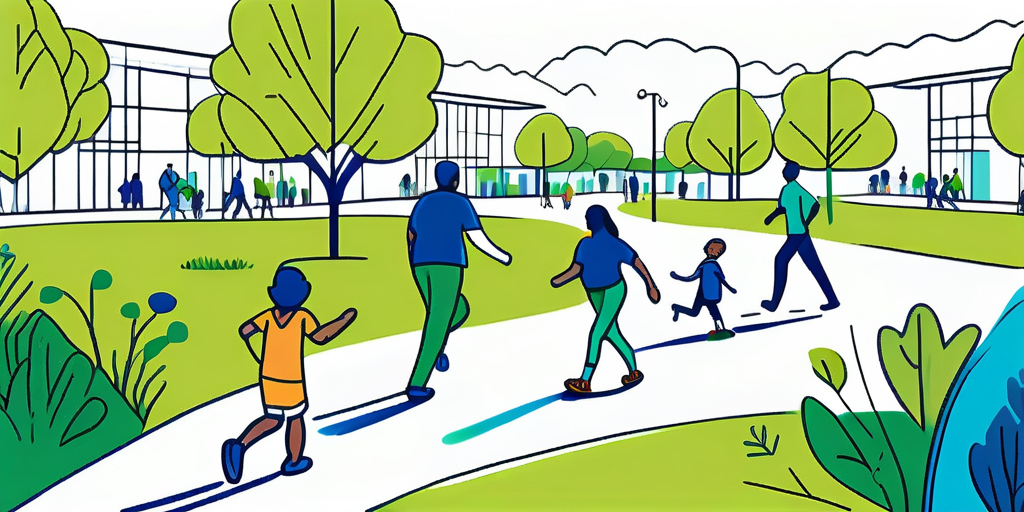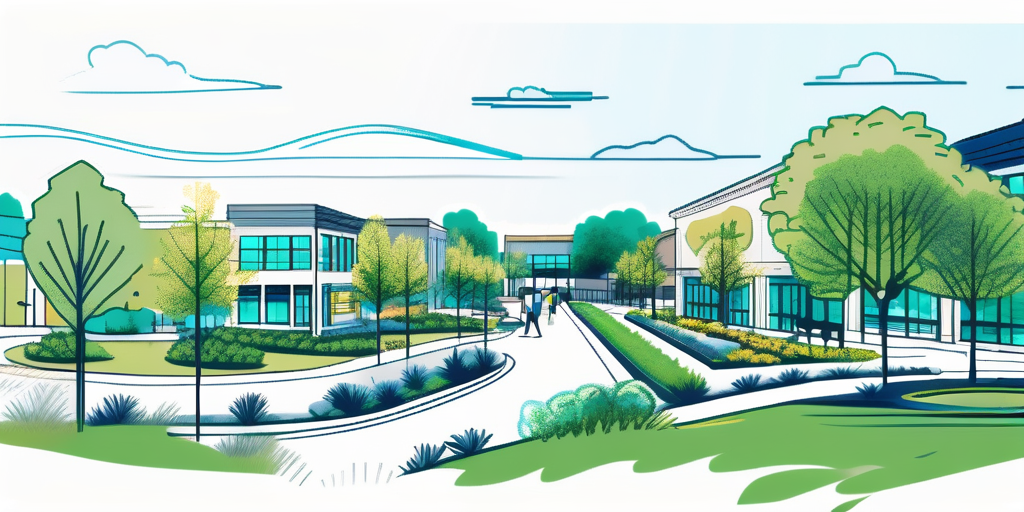
Creating a strong sense of community is essential for family well-being and development. Tennessee National stands out as a premier example of a family-centered community that fosters growth, connection, and shared experiences among its residents. In this article, we explore the various benefits of living in such a nurturing environment, focusing on key concepts, unique features, social impacts, economic advantages, and psychological benefits.
A family-centered community emphasizes the importance of family values and relationships, providing a nurturing atmosphere for all age groups. In these communities, families are encouraged to engage in activities that strengthen their bonds and support one another. This nurturing environment is not just limited to immediate family members; it extends to neighbors and friends, creating a network of support that enhances the quality of life for everyone involved.

Family-centered communities typically promote collaboration, communication, and shared responsibilities. These principles guide interactions among residents, creating an inclusive environment where individuals feel valued and supported, no matter their background or family structure. Regular community events, such as potlucks, game nights, and volunteer opportunities, serve as platforms for families to connect, share experiences, and build lasting friendships, reinforcing the sense of community.
The core values of a family-centered community revolve around respect, love, and responsibility. These values lead to a welcoming and supportive atmosphere, encouraging everyone to contribute positively to the community's growth. Respect for one another fosters trust, while love creates familial connections that extend beyond blood relations. This sense of belonging is vital, as it helps individuals feel secure and appreciated, which can significantly impact their mental and emotional well-being.
Furthermore, responsibility within the community ensures that each member actively participates in enhancing the overall well-being of all residents. By nurturing these core values, Tennessee National cultivates a genuine sense of belonging. Community members often take on roles that align with their strengths and interests, whether it’s organizing events, mentoring youth, or participating in local governance, thereby enriching the community fabric and instilling a sense of pride in collective achievements.
Unlike traditional communities that may focus solely on individual pursuits, family-centered communities prioritize collective engagement and collaboration. In a family-centered community, the emphasis is on building relationships, where neighbors become extended family and support each other in various aspects of life. This shift from individualism to collectivism not only enhances social ties but also fosters a sense of accountability among residents, as everyone plays a role in the community’s success.
This collaborative environment promotes shared experiences, creating opportunities for families to bond over joint activities and communal responsibilities. Consequently, residents of family-centered communities often report higher levels of happiness and satisfaction compared to those in more traditional settings. The presence of communal spaces, such as parks and community centers, further facilitates interaction, allowing families to engage in recreational activities together, which strengthens their connections and creates a vibrant, dynamic atmosphere where everyone can thrive.
Tennessee National's approach to community living incorporates several unique features that prioritize family well-being. These aspects are designed to enhance the overall living experience, making it an ideal location for families seeking connection and support.
From well-planned communal spaces to engaging activities for all ages, Tennessee National fosters an inviting and dynamic environment. Several elements set it apart and contribute to a robust sense of community.
Community activities play a significant role in fostering family bonding. At Tennessee National, residents can participate in a variety of events ranging from outdoor movie nights and family game days to seasonal festivals and workshops. Such activities create opportunities for families to come together and create lasting memories.
By engaging in these shared experiences, families not only strengthen their internal bonds but also build connections with their neighbors. As families interact in these communal settings, deep friendships form, creating a network of support that enhances the overall sense of belonging in the community. Additionally, these activities often include educational components, such as gardening workshops or cooking classes, which allow families to learn new skills together, further enriching their time spent in the community.
A safe and secure environment is paramount for family well-being. Tennessee National’s design prioritizes safety measures, ensuring that residents feel secure in their surroundings. This focus allows families to thrive without constant worry, fostering a peaceful atmosphere that contributes to overall happiness.
With 24-hour security, well-lit public spaces, and neighborly vigilance, families can confidently engage in outdoor activities, knowing they are in a safe environment. Such peace of mind further enables children to explore and play freely, which is essential for their development. Moreover, the community's layout encourages active lifestyles, with walking trails and parks strategically placed to promote family outings and physical activity. This not only nurtures a sense of security but also encourages families to embrace an active lifestyle, which is crucial for both physical and mental health.
Social interaction is a crucial aspect of human development, and living in a family-centered community provides ample opportunities for meaningful connections. Tennessee National encourages social engagement among its residents, promoting a culture of inclusivity and support.

In such an environment, families not only enjoy their internal dynamics but also benefit from a broader social network that enriches their lives. These social connections bring numerous advantages that positively influence family dynamics and personal growth. Families can share resources, from childcare to advice on parenting, creating a sense of security and belonging that is often hard to find in more isolated living situations. This interconnectedness fosters a nurturing atmosphere where children can play and learn together, while adults can forge friendships that last a lifetime.
Community interaction plays a pivotal role in shaping social skills and emotional intelligence. At Tennessee National, regular interactions among residents encourage communication, cooperation, and problem-solving—essential skills for children to learn as they grow.
Additionally, these interactions provide an opportunity for families to learn from one another, sharing diverse perspectives and experiences that foster understanding and empathy. This supportive social fabric contributes to a positive environment where families can flourish together. For instance, community events such as potlucks, sports leagues, and volunteer opportunities not only bring families together but also teach children the importance of teamwork and civic responsibility. As they engage in collaborative activities, children develop a sense of belonging and learn to appreciate the diverse backgrounds and traditions of their neighbors, enriching their social education.
Shared values and goals are fundamental to creating strong family-centered communities. In Tennessee National, residents often participate in discussions and initiatives that align with their collective aspirations, whether related to community improvement or cultural events.
By fostering a sense of unity and purpose, these shared values ensure that all families work together toward common objectives, enhancing the community's overall vitality. This collaboration cultivates a sense of pride among residents, strengthening their commitment to contributing positively to their neighborhood. Furthermore, when families unite around shared goals—such as environmental sustainability, educational initiatives, or health and wellness programs—they not only enhance their own lives but also inspire future generations to take an active role in their community. The result is a vibrant, engaged populace that thrives on mutual respect and cooperation, setting a powerful example for children about the importance of community involvement and collective effort.
Beyond social benefits, family-centered communities offer compelling economic advantages. Living in a supportive environment like Tennessee National can have direct impacts on financial stability and opportunities for growth.

Community support manifests in various ways, from shared resources to collaborative initiatives, all crucial for fostering economic resilience among residents.
Community support enhances financial stability for families. In Tennessee National, residents often exchange services, lend resources, and share knowledge regarding budgeting, home maintenance, or child-rearing, which can reduce individual financial burdens.
Such cooperative efforts create a safety net, ensuring that families can navigate through challenges more effectively. When residents support each other financially and emotionally, both individual and collective resilience is dramatically improved. This interconnectedness can lead to innovative solutions for common financial issues, such as group purchasing discounts or shared childcare arrangements, which can significantly lower costs for families. The result is a community where families are not just surviving but thriving, with a stronger foundation for future investments and opportunities.
Access to community resources is instrumental in promoting economic growth. Tennessee National is designed to provide a plethora of amenities and services that support residents in various aspects, including education, healthcare, and recreational opportunities.
By investing in such resources, families can improve their quality of life while also finding new avenues for economic advancement. This symbiotic relationship fosters a thriving community where members can pool their knowledge and skills for mutual benefit, bolstering economic success. For instance, local workshops and training programs can empower residents with new skills, making them more competitive in the job market. Additionally, community-sponsored events can stimulate local businesses, creating a vibrant economy that benefits everyone. The emphasis on collaboration and resource-sharing not only enhances individual prospects but also strengthens the overall economic fabric of Tennessee National, making it a model for other communities aiming for sustainable growth.
The psychological benefits of living in a family-centered community are profound. Tennessee National focuses not only on physical surroundings but also on the emotional and mental well-being of its residents.
By fostering an inviting environment that prioritizes mental health, families can thrive in a community that understands the significance of psychological support.
A supportive community plays a critical role in enhancing mental health and well-being. At Tennessee National, residents often seek support from one another during challenging times, knowing they are surrounded by understanding neighbors.
This collective emotional support reduces the feelings of isolation and loneliness that many individuals face. In turn, such connections dramatically improve residents' overall mental state and well-being. Regular community events, such as potlucks and family game nights, further strengthen these bonds, creating a network of trust and encouragement that residents can rely on. The shared experiences not only foster friendships but also create a sense of belonging, which is essential for emotional stability.
Living in a supportive community helps families develop effective stress management strategies. Tennessee National encourages families to engage in enjoyable activities together, fostering relaxation and joy amidst daily challenges.
Moreover, access to community resources such as group counseling, wellness programs, and recreational facilities contributes to comprehensive mental wellness, allowing residents to manage stress effectively. The mutual support and connection within the community create an environment where families can find solace and strength in one another. Additionally, the presence of local support groups and workshops focused on mental health awareness empowers residents to take proactive steps in addressing their emotional needs, equipping them with tools to navigate life's ups and downs. This proactive approach not only alleviates stress but also cultivates resilience, enabling families to face challenges with a united front.
In conclusion, the benefits of a family-centered community, as exemplified by Tennessee National, are extensive and multifaceted. From emotional and social advantages to economic resilience and mental well-being, living in a supportive environment significantly enhances the quality of life for families. Investing in such communities lays the groundwork for lasting family bonds and enriching experiences that can be cherished for years to come.